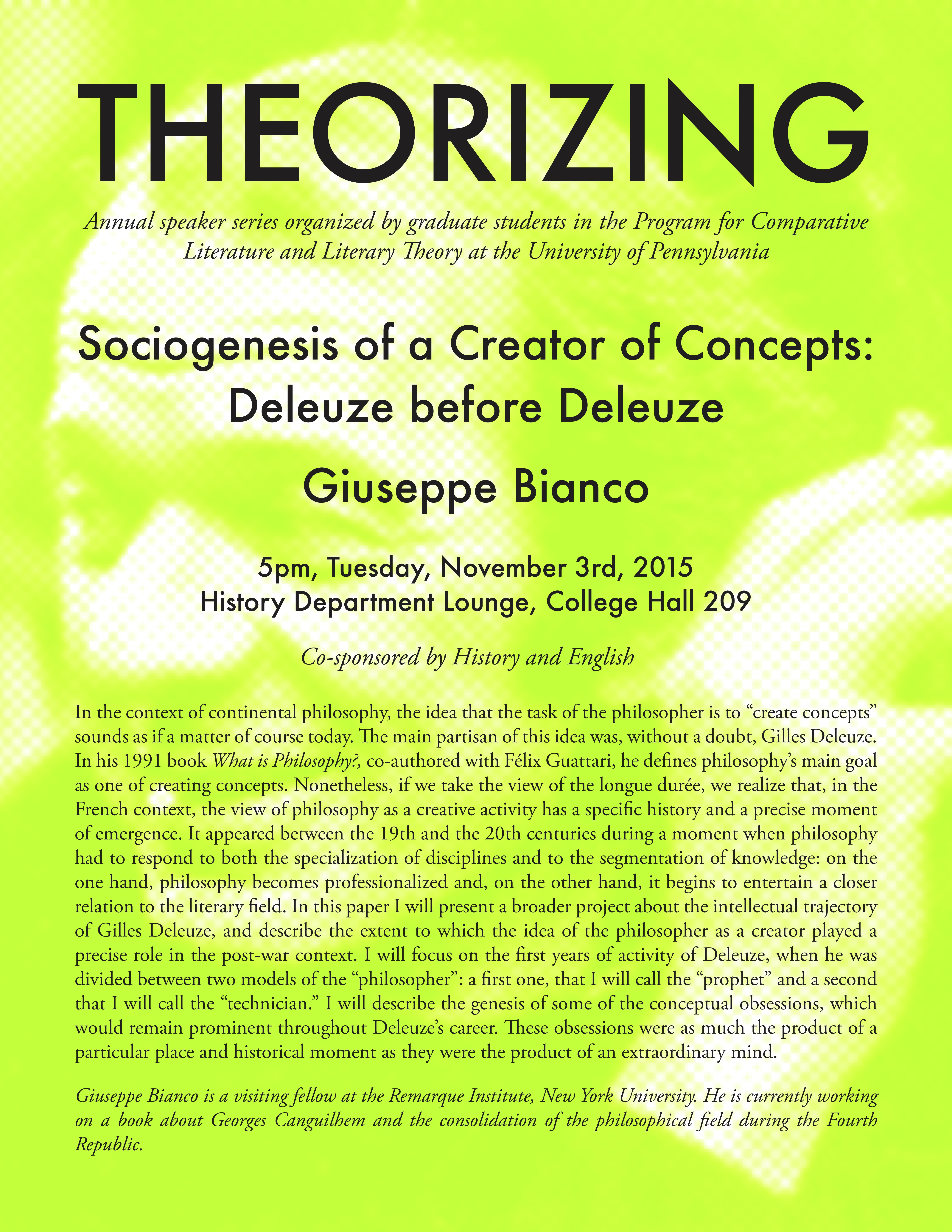Event

Theorizing: Program for Comparative Literature & Literary Theory Annual Speaker Series
Giuseppe Bianco, Remarque Institute, New York University
Sociogenesis of a Creator of Concepts: Deleuze before Deleuze
DATE: Tuesday, November 3, 2015
TIME: 5:00pm
LOCATION: College Hall 209
Co-sponsored by History and English
In the context of continental philosophy, the idea that the task of the philosopher is to “create concepts” sounds as if a matter of course today. The main partisan of this idea was, without a doubt, Gilles Deleuze. In his 1991 book What is Philosophy?, co-authored with Félix Guattari, he defines philosophy’s main goal as one of creating concepts. Nonetheless, if we take the view of the longue durée, we realize that, in the French context, the view of philosophy as a creative activity has a specific history and a precise moment of emergence. It appeared between the 19th and the 20th centuries during a moment when philosophy had to respond to both the specialization of disciplines and to the segmentation of knowledge: on the one hand, philosophy becomes professionalized and, on the other hand, it begins to entertain a closer relation to the literary field. In this paper I will present a broader project about the intellectual trajectory of Gilles Deleuze, and describe the extent to which the idea of the philosopher as a creator played a precise role in the post-war context. I will focus on the first years of activity of Deleuze, when he was divided between two models of the “philosopher”: a first one, that I will call the “prophet” and a second that I will call the “technician.” I will describe the genesis of some of the conceptual obsessions, which would remain prominent throughout Deleuze’s career. These obsessions were as much the product of a particular place and historical moment as they were the product of an extraordinary mind.
